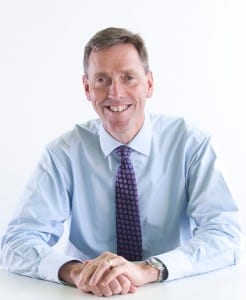The general practice rescue package: celebrate, briefly, and then the work of implementation begins
By ucbtebe, on 22 April 2016
Professor Martin Marshall
Lead, Improvement Science London.
The 21st of April 2016 will go down as a good day for general practice, perhaps one of the best in recent decades. A few tweets ago I said that the announcement had to be sufficiently substantial and coherent to FEEL BIG to struggling practices. It had to say that general practice was valued, that it had a bright future. Given the context of economic woe and media interest in failing hospitals, this new investment in general practice is better than many hoped and remarkably close to the ambitious demands of the RCGP.
Several commentators have attempted to place the package in a historical context. The proposals are different from the 1966 charter, which focused on building a basic foundation for modern general practice. Different too from the 2004 contract, which focused largely on improving clinical care for long term conditions. The General Practice Forward View (interesting to compare NHSE-speak with front line clinician-speak of ‘rescue’) is in some ways more ambitious. It recognises that general practice needs stabilising right now, urgently, but it also starts to shape a different looking general practice for the future.
We all know that Simon Stevens is a clever man but to start a health policy document with the words ‘There is arguably no more important job in modern Britain than that of the family doctor’ was inspired. I can be as sceptical about political rhetoric as the next person but sometimes we should suspend our discourse of lament and just celebrate a serious lobbying success.
OK, enough celebration, let’s get down to work. What next? Here are a few thoughts:
1. Some of the ‘new’ funding is recycled from previous announcements but most of it appears to be really new – a genuine commitment to give a good proportion of the ‘sustainability and transformation’ money promised to the NHS in the recent budget to the part of the system where it will achieve greatest value – general practice. But let’s not be naive. The hospital sector has its own crisis. Acute Trust chief executives have political influence. The public (and MPs) will protect their hospitals. So the pressure will be on the system to put its money where it always has. Just last week, NHS England was telling CCGs to commission more services from their local hospitals in order to reduce their deficits. The ‘11% battle’ has not yet been won.
2. General practice will look different in 10 years time as a result of this package. Non-doctors will play a much bigger role, perhaps seeing the majority of patients presenting with ‘straight forward’ problems. GPs will see fewer patients, focusing on those with more complex problems, with considerably longer appointments, and they will lead, mentor and supervise a wider multi-disciplinary primary health care team. I’m not sure whether this is a pragmatic response to the shortage of trained GPs, or whether it really is desirable. We have plenty of experience that non-doctors do a superb job in general practice and their salary costs are lower. But the much-cited Starfield arguments in favour of general practice are based largely on expert medical generalists providing care. Will other health professionals be as good at managing uncertainty and risk? They might be good for individual patients but are they good for the health system? There must be a commitment to rigorous long-term evaluation to answer this fundamental question.
3. No one believes that life in the front line of general practice will suddenly get easier. We know that work load will continue to rise because of demographic changes, patient expectations and continuing shifting of care out of hospitals into the community. A bad outcome of this package would be that in the coming years general practice doesn’t quite go under but only just about keeps on coping. General practice will only thrive (and that must be our ambition) if we use the new resources to create space for GPs – space to provide the quality of care for patients that we all strive to provide, space to continuously improve the care that we provide, space to develop ourselves as professionals and space to work with others on developing new ways of working. Actually, just space to feel joy in being a GP.
So, celebrate, briefly, and then the work of implementation begins.
Martin Marshall
Professor of Healthcare Improvement, UCL
GP, Newham, East London
 Close
Close



